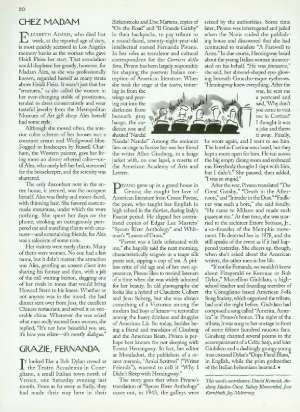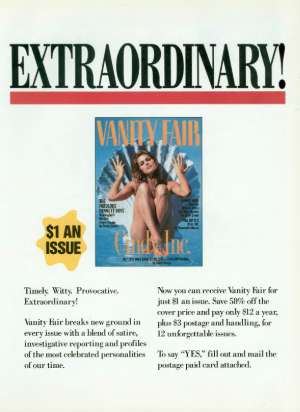The New Yorker, July 24, 1995 P. 30
Signed Talk story about Fernanda Pivano, an Italian intellectual who worked as a translator and who has been largely responsible for shaping the postwar Italian conception of American literature. It looked like a Bob Dylan crowd at the Teatro Accademia in Conegliano, a small Italian town north of Venice. The group had gathered to pay tribute to the round-faced, seventy-eight-year-old Fernanda Pivano. Pivano had also worked as a cultural correspondent for the Corriere della Sera. Among the fans was her friend, the writer Allen Ginsberg. Pivano grew up in Genoa; she caught her love of American literature from Cesare Pavese, the poet, who taught her English in high school in the 1930s, during Italy's Fascist period. He slipped her contraband copies of Edgar Lee Masters's "Spoon River Anthology" and Whitman's "Leaves of Grass." Pivano is perhaps best known for not sleeping with Ernest Hemingway. Her editor at Mondadori, the publishers of a recent memoir, "Amici Scrittori" ("Writer Friends"), wanted to call it "Why I Didn't Sleep with Hemingway." When Pivano's translation of "Spoon River Anthology" came out, in 1943, the galleys were seized. Pivano was jailed when the Nazis discovered that she had been contracted to translate "A Farewell to Arms." After the war, Hemingway sent her a postcard with an invitation to visit him in Cortina. When she finally went to Cortina, everybody thought she was sleeping with Hemingway. After the war, Pivano translated "The Great Gatsby," "Death in the Afternoon," and "Intruder in the Dust." Pivano said Faulkner made passes at her. At that time she was married to the architect Ettore Sottsass, Jr., a co-founder of the Memphis movement, who deserted her in 1978. Marcellino Giubilato, a high-school teacher and founding member of the Conegliano-based American Folk Song Society, which organized the tribute, said Pivano was responsible for introducing Fitzgerald, Kerouac, and Bob Dylan to Italy. Giubilato had composed a song called "America, America" in Pivano's honor. The night of the tribute, it was sung to her. Ginsberg chanted several poems to the accompaniment of a Celtic harp, and later Giubilato and a grungy young man crooned Dylan's "Dope Fiend Blues."

